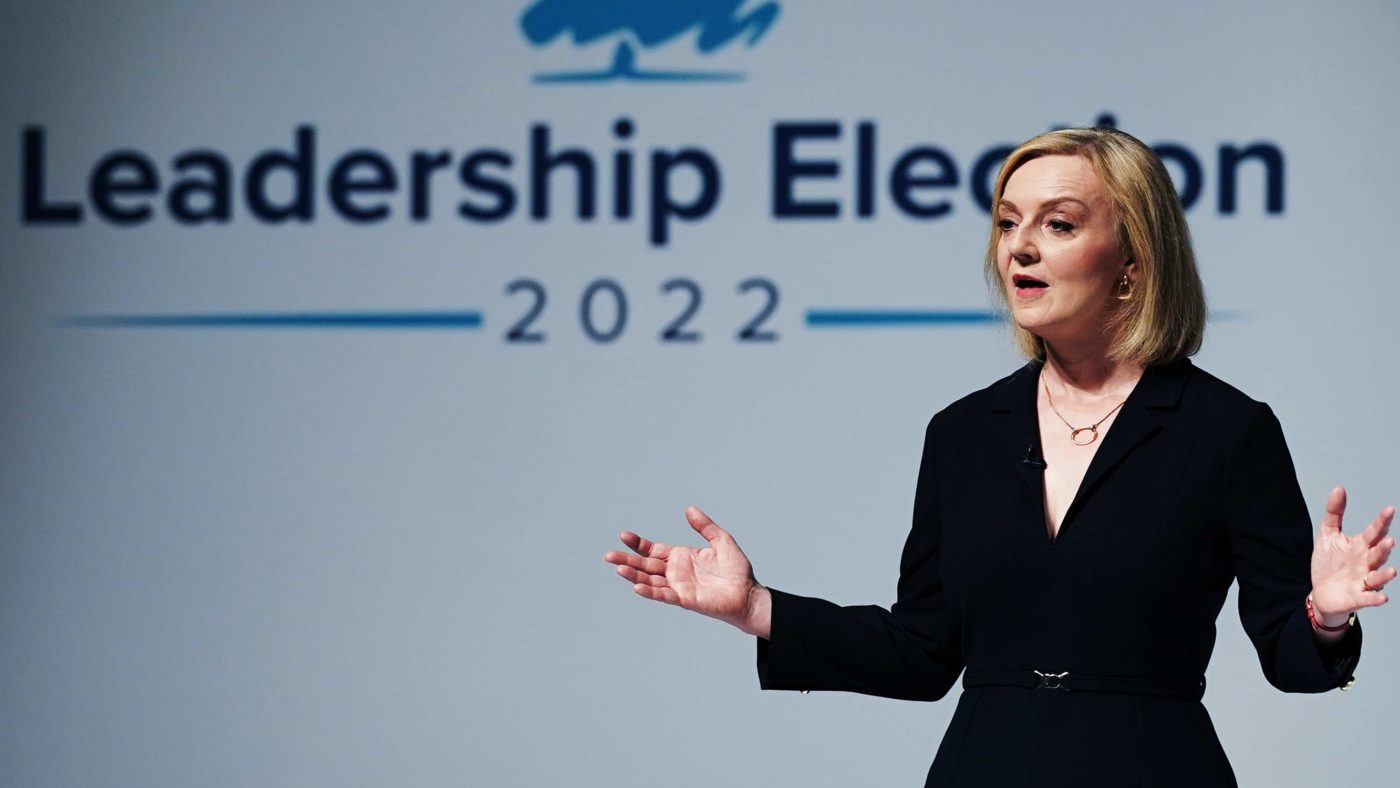We know what Liz Truss likes. The frontrunner to be our next Prime Minister is a fan of tax cuts, going for growth, and the music of Taylor Swift.
We also know what she doesn’t like. As she told The Financial Times last weekend and Tory members this week, Truss is not a fan of Gordon Brown-style handouts. She opposes them with a strength and rigidity usually reserved only for denouncing cheese imports.
Still, Rishi Sunak’s campaign have been behind the Foreign Secretary on this issue. There is little mileage made in a Tory leadership campaign by a candidate condemning tax cuts – as Sunak has learnt.
But in a week where headlines have been dominated by the prediction that the energy price cap might surge past £4,000 early next year, Sunak has an obvious incentive to present his rival as tone-deaf over the cost-of-living crisis. Cutting taxes might be all well and good, the ex-Chancellor can say, but gaining £200 in reduced National Insurance is scant consolation if you are spending an extra £1,000 (or more) a year on gas and electricity.
Truss’ plan to freeze the green levies that make up 8-10% of our fuel bills may be difficult to introduce in practice. Those levies – of which I am no fan – fund many renewables contracts. Of course, Truss could substitute the funding lost from the levies from general taxation. But as she plans to make £30-40bn in tax cuts, there would be an ever-increasing amount that needs to be found without spending cuts.
Then again, prioritising fiscal rectitude may also be a dead end. Polling from Public First has been matched by a declaration from the peoples’ self-appointed champion Martin Lewis that the public are expecting Covid-level help with their bills. That would clearly be incredibly expensive and use up any cash Truss was planning to spend on tax cuts or, say, a rise in defence spending.
Now, Truss’s camp is explicit in saying that she hasn’t ruled out further action. Her backers Penny Mordaunt and Brandon Lewis have both said they expect she will do more, and her campaign explicitly said she ‘would always look at what needs to be done and the best way to manage the economy’. Then again, they also said talk of increasing payments shows ‘the ghost of Gordon Brown lives on’. So I’d hardly say she was enthusiastic.
Sunak meanwhile is somewhat stuck: the public appear unenthusiastic about the £15bn he announced in May, which he pledged would provide the most vulnerable with up to £1200. But, like Truss, he wants to see just how bad things get before going further. That’s a position that’s becoming harder to maintain, and every day he does so calls his own judgment further into question.
Moreover, Sunak showed a strange reluctance as Chancellor to use the existing welfare system to support the most vulnerable. Back in May, he was criticised by many for not raising Universal Credit in line with inflation. He blamed IT problems. That would hardly surprise me, knowing what we do about the competence of the British state.
But this was the same Chancellor who was associated with the £20 Universal Credit uplift during the pandemic. A ‘computer says no’ excuse rings especially hollow for a politician who told the public he would do ‘whatever it takes’ during the pandemic, especially when Devin Ghelani, who helped develop the software behind Universal Credit, has said that IT shouldn’t be an issue.
The nub of this – and the difficulty facing whoever becomes PM In September – is that the public see this as just as serious a crisis as the pandemic, and expect the Government to act with a similar level of intent.
Sunak is, perhaps understandably, worried about inflation or the amount of extra borrowing involved in a furlough scheme equivalent for fuel bills. Truss says she will ‘do all I can to make sure that energy is affordable’, but hasn’t offered much in the way of specifics beyond those crowd-pleasing tax cuts.
Another levy she’s not at all keen on is the recently announced windfall tax on energy companies, which Truss and her allies have made clear they do not want to extend. Coupled with reversing Sunak’s Corporation Tax hikes, this is all good, solid, free-market fare. But even the most ardent devotee of the Laffer Curve does occasionally need to read the room. Right now, the public are not very happy with energy companies making big profits. A PM who is seen to put corporate tax cuts ahead of cost-of-living measures would be playing a very risky political game indeed.
If Truss wants to take a Swiftian approach to the energy crisis, and ‘shake it off’ with a tax cut or two, she will be in for a very rude awakening in Downing Street. Allowing people to keep more of their own money is a great thing. But there also times when a ‘handout’ might be the best option available.
Click here to subscribe to our daily briefing – the best pieces from CapX and across the web.
CapX depends on the generosity of its readers. If you value what we do, please consider making a donation.


